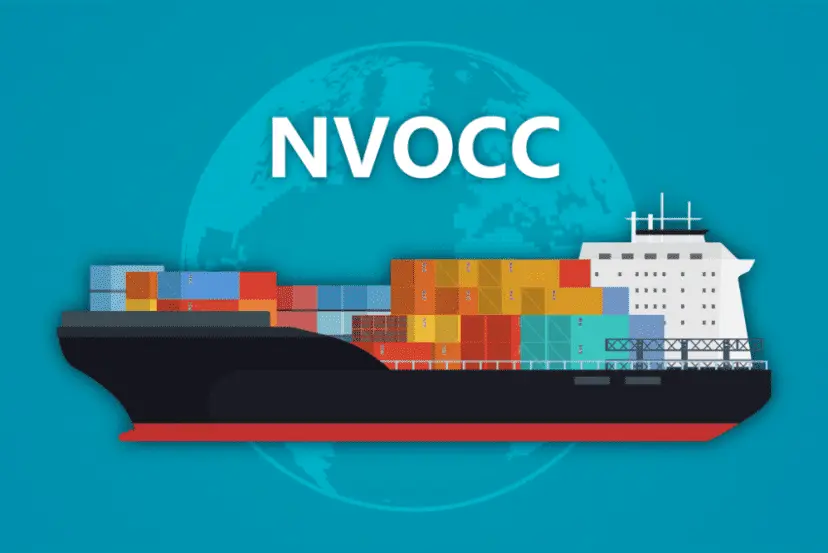In the intricate landscape of global shipping, understanding the roles of various players is paramount for buyers. Among these players are Non-Vessel Operating Common Carriers (NVOCCs), actual carriers, and contracting carriers. Each of these entities has distinct responsibilities and functions that can significantly impact shipping costs, service quality, and delivery timelines.
An NVOCC (Non-Vessel Operating Common Carrier) provides shipping services similar to actual carriers but does not own vessels. Instead, it arranges cargo space on ships, managing logistics and documentation for shippers. Unlike traditional carriers, NVOCCs issue their own bills of lading, consolidating shipments to enhance efficiency and offer tailored services to buyers.
Understanding these roles can empower buyers to make informed shipping decisions, thereby maximizing efficiency and cost-effectiveness in their supply chains.
What is an NVOCC?
An NVOCC(Non-Vessel Operating Common Carrier) is defined as a type of ocean carrier that does not operate its own vessels but facilitates the transport of cargo by arranging for space on existing shipping lines. Acting as intermediaries, NVOCCs connect shippers with actual carriers while managing the complexities of shipping logistics.
Key Characteristics of NVOCCs:
- Non-ownership of Vessels:
- NVOCCs do not own the ships they utilize for transporting goods. Instead, they book cargo space from actual carriers, allowing for flexibility in service offerings.
- Issuance of Bills of Lading:
- They create and issue their own bills of lading, which serve as contracts between the shipper and the NVOCC. This documentation is crucial for legal and financial purposes, outlining the terms and conditions of the shipment.
- Consolidation Services:
- NVOCCs have the capability to consolidate cargo from multiple shippers into one shipment. This practice not only reduces costs but also optimizes shipping routes and enhances service reliability.
- Regulatory Compliance:
- NVOCCs ensure compliance with various international shipping regulations, making them invaluable partners for businesses venturing into global markets.
Example:
For instance, Expeditors International, a renowned NVOCC, arranges cargo space on various shipping lines while managing the shipping process for its clients. This enables small and medium-sized businesses to access shipping solutions that may be cost-prohibitive if they had to book space directly with carriers.
Functions of an NVOCC
NVOCCs perform several essential functions that streamline the shipping process for buyers:
- Issuing Bills of Lading:
- NVOCCs issue their own bills of lading, which serve as legally binding contracts between the NVOCC and the shipper. This is essential for protecting the interests of both parties and ensuring accountability.
- Consolidation of Shipments:
- They consolidate cargo from multiple clients into a single shipment, allowing smaller shipments to share container space. This reduces costs and enhances logistical efficiency.
- Managing Logistics:
- NVOCCs handle various logistical tasks, including booking cargo space, managing documentation, and coordinating customs clearance. This comprehensive management can relieve buyers of many administrative burdens.
- Providing Expertise:
- With extensive knowledge of international shipping regulations and practices, NVOCCs offer valuable insights to buyers, helping them navigate complex logistical challenges.
- Cargo Tracking:
- Many NVOCCs provide cargo tracking services, allowing shippers to monitor their shipments in real time, thereby enhancing transparency and reliability.
Example:
Imagine a scenario where multiple small retailers want to ship their products overseas. An NVOCC can consolidate their shipments into a single container, significantly reducing shipping costs for each retailer and simplifying the logistics process.
What is the Difference Between a Carrier and a NVOCC?
The primary distinction between an actual carrier and an NVOCC lies in ownership and responsibility.
Actual Carrier:
- Ownership: Actual carriers own the vessels used for transporting cargo. They are responsible for the entire logistics process, from loading to unloading.
- Responsibility: They assume full responsibility for the physical transport of goods, including liability for damage or loss during transit.
NVOCC:
- Non-ownership: NVOCCs do not own vessels; they arrange for the shipping of goods by booking space on carriers' ships.
- Liability: While NVOCCs issue their own bills of lading and are liable under those contracts, they are not responsible for the actual transport.
Key Points:
- Operational Structure: NVOCCs operate as intermediaries, providing shipping solutions without the need for owning vessels.
- Service Flexibility: NVOCCs can offer more flexible shipping options and rates due to their relationships with multiple carriers.
Key Differences Between NVOCCs and Actual Carriers
- Ownership:
- Actual Carrier: Owns the ships and containers, providing direct transportation services.
- NVOCC: Does not own vessels and books cargo space from actual carriers.
- Liability:
- Actual Carrier: Directly liable for cargo during transit.
- NVOCC: Liable under their own bills of lading but not for the physical transportation.
- Service Range:
- Actual Carrier: Typically offers standard shipping services.
- NVOCC: Can provide customized services, including cargo consolidation and documentation management.
Example:
If a manufacturer needs to transport a large shipment of goods, they may choose to work directly with an actual carrier, such as Maersk. However, if a small business wants to ship a few pallets, they might opt for an NVOCC to benefit from consolidated shipping rates and expert logistics management.
Key Differences Between NVOCCs and Contracting Carriers
Contracting carriers are entities that may provide similar services to NVOCCs but differ in operational aspects:
- Scope of Services:
- Contracting Carriers: Often provide a broader range of services, such as warehousing and distribution, in addition to transport.
- NVOCCs: Focus primarily on logistics and shipment arrangements.
- Billing Practices:
- Contracting Carriers: Have specific contractual terms and conditions for their services, often providing dedicated contracts for large shipments.
- NVOCCs: Issue their own bills of lading and may have different terms compared to traditional contracting carriers.
- Business Relationships:
- Contracting Carriers: Often have long-term relationships with specific manufacturers or retailers, offering tailored services.
- NVOCCs: Maintain relationships with multiple shipping lines, providing flexibility in options.
Example:
A contracting carrier may partner with manufacturers to offer integrated logistics solutions, combining transport, warehousing, and distribution services, while an NVOCC primarily secures transport space and manages logistics for various clients.
Advantages of Using NVOCCs for Buyers
Using NVOCCs can provide several advantages for buyers, particularly those looking to optimize their shipping processes:
- Cost Efficiency:
- By consolidating shipments, NVOCCs often provide better pricing than traditional carriers, especially for smaller shipments that may not fill a full container.
- Flexibility:
- NVOCCs can offer more flexible shipping options and routes, accommodating various shipping needs and schedules.
- Expertise and Guidance:
- NVOCCs have extensive knowledge of international shipping regulations and can provide valuable insights to buyers, helping them navigate complex logistical challenges.
- Improved Access:
- Smaller businesses can access global shipping services that may not be available if they were to deal directly with large shipping lines.
- Reduced Administrative Burden:
- By managing logistics, documentation, and compliance, NVOCCs alleviate the administrative workload for buyers, allowing them to focus on core business activities.
When to Choose an NVOCC Versus a Traditional Carrier
The decision to choose between an NVOCC and a traditional carrier depends on the specific shipping needs and context of the buyer:
- Choose an NVOCC if:
- You require flexibility in shipping options and cost-effective solutions.
- You need assistance navigating the complexities of international shipping regulations.
- You want to consolidate shipments to reduce costs and increase efficiency.
- Choose a traditional carrier if:
- You need direct transport services and prefer dealing with the company that owns the shipping vessels.
- You have larger volumes of cargo that may justify direct dealings with an actual carrier.
Example:
A startup launching a new product may prefer an NVOCC to manage its initial shipments, allowing them to navigate the complexities of shipping without overwhelming their resources. Conversely, an established manufacturer with a steady volume of shipments may choose to work directly with an actual carrier for better rates on bulk shipments.
Examples of NVOCCs in the Industry
Several prominent NVOCCs are recognized for their services and expertise in the shipping industry:
- Kuehne + Nagel: A global logistics provider that integrates NVOCC services with freight forwarding, offering tailored solutions for various industries, including automotive, healthcare, and consumer goods.
- Expeditors International: Provides comprehensive NVOCC services, focusing on logistics, customs brokerage, and supply chain management, enabling clients to streamline their operations.
- Panalpina: Known for its integrated logistics solutions, Panalpina combines NVOCC services with air freight and land transport, providing clients with a one-stop solution for their shipping needs.
Conclusion
Understanding the distinctions between NVOCCs, actual carriers, and contracting carriers is crucial for buyers looking to optimize their shipping strategies. NVOCCs offer unique advantages, including flexibility, cost efficiency, and logistical expertise, making them invaluable partners in the global shipping landscape. By making informed decisions, buyers can enhance their shipping processes, reduce costs, and improve service quality, ultimately driving business success.






